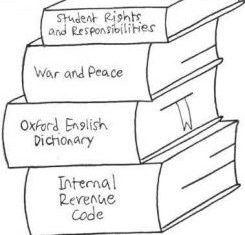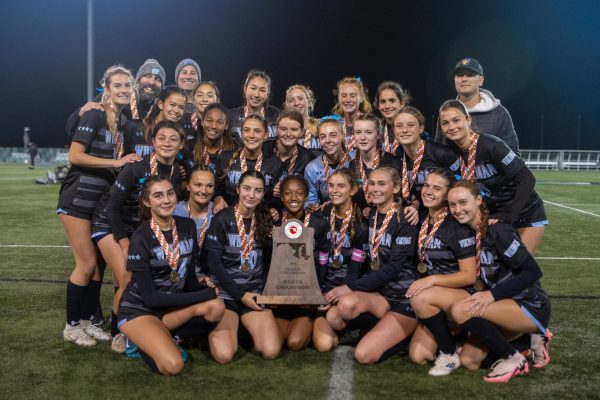The MCPS rights and responsibilities packet is a waste
October 5, 2016
Most students view the MCPS Rights and Responsibilities Guide simply as material for paper airplanes or spitballs. Unfortunately, they’re right: the guide—which is inevitably recycled by nearly everyone after they get it in homeroom on the first day of school—has become a monumental waste of paper, time and energy for the county.
Even if a student does decide to keep the guide, they won’t find much in it. It is largely outdated and fails to address legitimate student needs.
Instead of this packet, MCPS should hand out a concise list of the most relevant and important rights and responsibilities—such as the rights to participate in political campaigns and propose study topics—with a link to where one could read the full document, which already is accessible online. This would allow students to still have access to all of the information without wasting massive amounts of paper or students’ time.
It doesn’t take long to see flaws in the guide. Take the section on cell phones, or “portable communication devices,” as the county prefers to call them. The guide requires students to have their phones “off and out of sight” during the school day, except for at lunch. Aside from contradicting individual school policies, this is a completely unrealistic expectation—students routinely use their phones, both for educational and personal reasons, and the county should not and will not stop that.
The packet also thinks it is important to inform the student body of MCPS that distributing political material that is “unconstitutional, illegal, violates state election laws, or […] poses a danger” to the educational environment is not allowed under MCPS rules. This restatement of an already obvious rule is oddly redundant, since violating the Constitution and breaking the law should be a bigger concern than violating MCPS regulations.
All of this, of course, is superficial. But the point stands: why must this be distributed to every student? Without so much as an explanation, it’s no more than 12 sheets of useless paper—and since the average tree produces approximately 20,000 sheets of paper, according to the The Sierra Club, that means that distributing the packet to all MCPS students requires paper from nearly 100 trees.
There are some relevant points in the packet. These include students’ right to participate in political campaigns during school hours—albeit with approval from several parties—and the right to present “short courses of study on selected topics during the school day as alternatives or additions to the regular program” of school.
These are important for students to know, and should therefore be included in the list MCPS hands out instead, rather than burying them among useless and unending information.
But until something changes, MCPS will continue to kill nearly 100 trees every year, for no real purpose.










